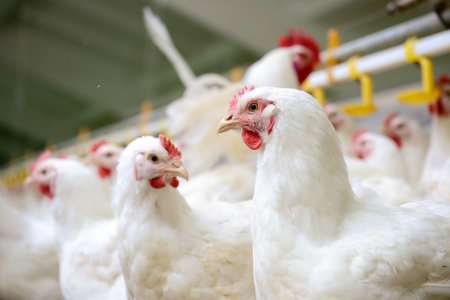The Animal Care Program’s first third-party audit was a success
By Jennifer Jackson
Thanks to the involvement of chicken farmers across the country, Canada’s poultry industry maintains its reputation for providing quality animal care for yet another year. NSF International, an auditing company, recently completed an annual Canada-wide audit of the Chicken Farmers of Canada’s (CFC) Animal Care Program to ensure the validity of the program, according to a Mar. 20 release.
The CFC launched its nation-wide, mandatory Animal Care Program in 2009. There are now 2,800 broiler farms across the country, all of which participate in the program. The program sets high-standard animal care requirements for producers to meet.
A team at the CFC audits producers yearly to ensure industry consistency and sustainability. For the first time, for the 2016 year, NSF performed a third-party audit to review the CFC auditing team.
NSF International gave the program and auditors a passing grade and found no systematic issues in the process, the CFC says.
"The national Animal Care Program has been implemented effectively and maintained on an on-going basis,” according to NSF International’s report. “Animal care measures have been consistently applied."

The success of the audit highlights the efficiency of the program, the CFC says. NSF audited CFC members in all provinces, reaching some 90 per cent of all CFC auditors.
The Animal Care Program provides the assurance to consumers and retailers that Canadian farmers are producing chicken with a high and consistent level of animal care, according to the CFC.
The Animal Care Program aligns with the National Farm Animal Care Council’s (NFACC) Code of Practice for the Care and Handling of Hatching Eggs, Breeders, Chickens and Turkeys.
The NFACC updated and finalized the Code of Practice in 2016. The CFC is incorporating the Code’s requirements into the Animal Care Program. This process will continue throughout 2017, the CFC says. By making these updates quickly, the CFC hopes to streamline the education process so producers will be well informed of any changes before the next audit.
The CFC is also lobbying the federal government to enact a protocol to recognize agricultural organizations and producers for the care they provide their animals. (This protocol is proposed for Agriculture and Agri-Food Canada’s next Agricultural Policy Framework, according to the release.) The proposed recognition would be comparable to the on-farm food safety recognition protocol.